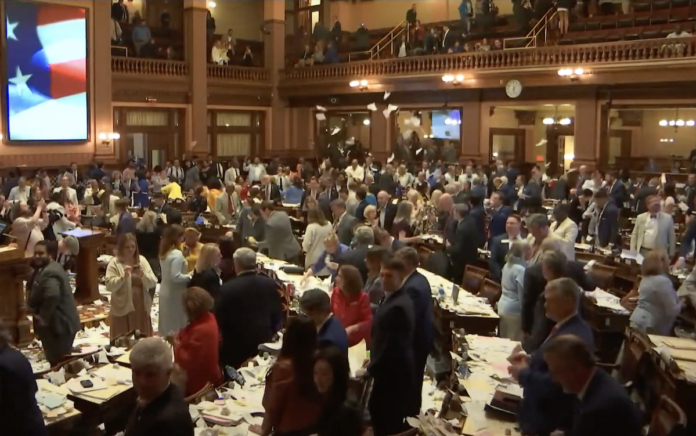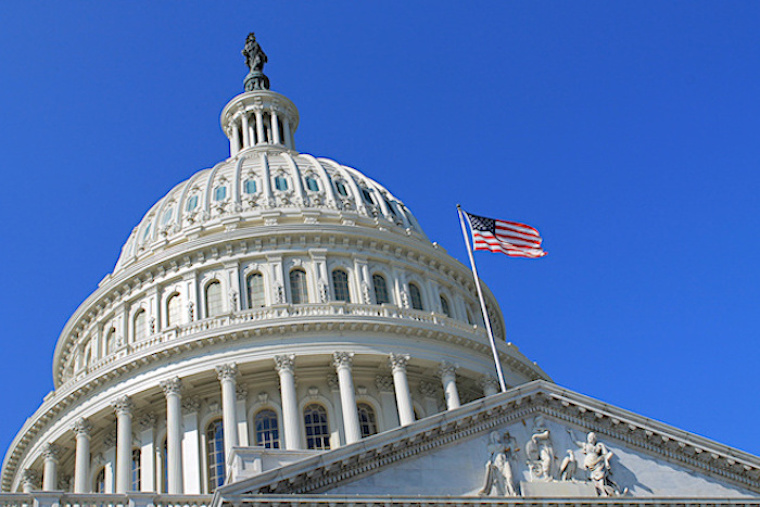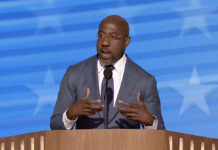
The curtain has closed on the 2024 legislative session, and lawmakers have finished passing bills that will impact Georgians this year.
The Georgia Legislature passed the fiscal year 2025 budget, the only bill it is required by law to pass, with only a few hours to spare on Sine Die.
The budget includes increases in funding for pre-K, transportation, and teacher retirement.
Chairman Matt Hatchett says it was, quote, “a good budget for students.”
“Just to be clear, this bill does not include funding for teachers to carry guns,” he said. “It does fully fund QBE one more time.”
It also includes more funding for sexual assault crisis centers.The final budget was a product of a joint appropriations committee between the House and the Senate, and now heads to Gov. Brian Kemp’s desk to be signed into law.
The Legislature also gave final passage to House Bill 1105, which would require sheriff’s departments to report the immigration status of detainees to federal immigration authorities. The sheriffs could face misdemeanor charges and their departments could lose state funding if they fail to comply,
It also punishes so-called “sanctuary cities” that do not comply with federal immigration laws.
Rep. Jesse Petrea sponsored the bill.
“Tis bill simply ensures that when individuals have committed crimes in Georgia and are jailed and in custody, that when we determine that they are illegally in this country we work fully with immigration authorities,” he said.
HB 1105 passed the House for a final time late on Thursday. It’s now up to Kemp to sign it into law.
Also on Sine Die, lawmakers approved a measure that clarifies the process for controversial voter challenges.
Senate Bill 189 spells out what is considered probable cause for challenging a person’s voting status. Republicans supporting the bill say it increases trust in elections, but Democrats, like Rep. Saira Draper, disagreed.
“You know the policy of not negotiating with terrorists?” Draper said. “I wish we had a policy not to placate conspiracy theorists.”
The bill also includes language to remove the QR codes on ballots in 2026.
It also allows third-party candidates who qualify to be on the presidential ballot in at least 20 states to automatically make it to Georgia’s ballot.
The bill now moves to Kemp’s desk to be signed into law.
Two other elections bills also passed both chambers. HB 974 would upload cast ballots online with voter names redacted and HB 1207 would allow local officials to curb the number of voting machines.
SB 351 also received final passage. It requires parental approval for children under age 16 to use social media, and would require school districts to block social media on school-owned devices and Wi-Fi. It would also require schools to educate students on social media’s effects on mental health.
Another bill revising the film tax credit narrowly made it in before the end of the night. The changes to the film tax credit program would add requirements such as employing crew from Georgia into the program.
Some controversial bills did not clear both chambers on Sine Die, so they will not become law. The House did not take up a bill that would allow for a constitutional amendment that would legalize sports betting. It also did not take up bills that would sever ties with the American Library Association, ban transgender girls from girls’ sports and restrict sexual education, or ban puberty blockers for transgender adolescents.
This article appears on Now Habersham in partnership with GPB News







